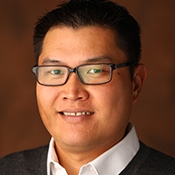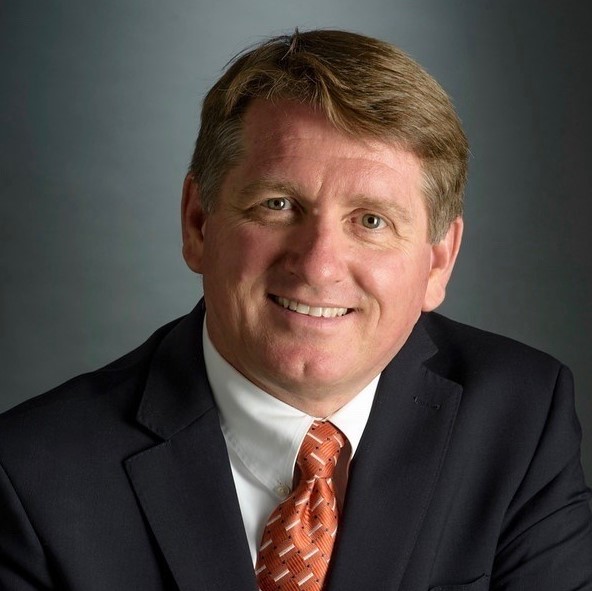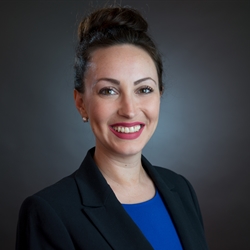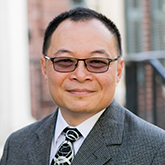The Policy Council is APPAM's governing board and is responsible for setting policy and creating strategy for the Association. It currently consists of four elected cohorts serving staggered, four-year terms of office.
Among the four person cohort for the Policy Council, one is a researcher in a non-acadmic setting, one is an institutional representative elected by the Committee of Institutional Representatives and two are researchers who work in academic settings. All will serve four-year terms.
The APPAM officers (ex officio voting); the APPAM Executive Director and the Editor of JPAM (ex-officio non-voting) comprise the Executive Committee; the Executive Committee is also part of the Policy Council.
Finally, one student is appointed annually to serve a two-year term on the Policy Council. There are two student seats on the Board and one new student is selected for service each year. They are appointed by the APPAM President, David Johnson, and the Chair of the Institutional Representatives, Patty Troppe. The 2018 student Policy Council members are Ashley Causey, Columbia University (serving through 2019), and Joaquin Rubalcaba, University of New Mexico (serving through 2018).
Ballots were sent to all APPAM members and voting was held December 11, 2017 through January 10, 2018. Please welcome our incoming Policy Council members!
Executive Committee Members
President-Elect
Matthew Stagner, Mathematica Policy Research
 I am thrilled to serve as President-Elect of APPAM. I have been a member of APPAM for nearly 35 years, and I’ve attended more than 30 Fall conferences over that time. I look forward to further service to this vibrant community.
I am thrilled to serve as President-Elect of APPAM. I have been a member of APPAM for nearly 35 years, and I’ve attended more than 30 Fall conferences over that time. I look forward to further service to this vibrant community.
APPAM has given me many things over the years: a professional community of shared values of rigor and relevance, a friendly yet critical learning environment, a place to be mentored, and a place to mentor in turn. No matter what you get out of APPAM, and whether it is your first associational home, or your second or third, I hope you can join me improving what we do, making it better each year.
I most recently served as APPAM’s secretary and chair of the Membership Committee. APPAM’s membership has exploded over the past few years. It is great to have so many new members, especially students. I look forward to making the association a great home for members old and new, expanding our reach to young career professionals. We must continue to promote and support the profession at all levels. We can strengthen APPAM by enhancing our diversity, to the benefit of all. We are pleased to increase the number of Equity and Inclusion Student Fellowships for the coming year. We hope as well to expand the number of sessions at the Fall conference that focus on issues of importance to under-represented groups.
I started my career in government, and I remain passionate about increasing the interaction of researchers, government officials and policy makers. APPAM’s combination of people from academic, non-academic research organizations, and government at all levels, makes it a rare place for exchange and improved understanding of perspectives. The 2018 conference will be back in our biennial home of Washington, DC, and we will be celebrating 40 years as an association. I hope we can break all our old records for submissions and attendance, and have the most exciting, thought-provoking, and collaborative meeting yet. Look for an announcement soon on the theme and types of sessions and events.
Finally, I encourage all of you to expand your involvement in APPAM, in ways small and large. Consider volunteering for a committee. Serve as (or seek out) a mentor. Attend an APPAM forum or student conference. Vote for Policy Council, and consider running yourself in the future. Whether you are new to APPAM, and or old-timer like me, I want to thank you for your membership and commitment. I look forward to working with you as President Elect, and as President, of this fine organization.
Vice President
Christopher (Kitt) Carpenter, Vanderbilt University
 I am thrilled to have the opportunity to serve as an APPAM Vice President, working with the Executive Committee, Policy Council, staff, and members to make our association a diverse and welcoming organization to scholars and practitioners engaging in excellent evidence-based public policy research. Like many of you, I consider the organization to be my main intellectual home, and the Fall Research Conference is a ‘can’t miss’ event on my calendar. Currently I am a Professor of Economics at Vanderbilt University where I direct the Vanderbilt LGBT Policy Lab. I also hold courtesy appointments at Vanderbilt in Health Policy; Law; Education; Women’s and Gender Studies; and Medicine, Health, and Society. My research is in empirical health and labor economics, with a particular focus on substance use policy; cancer prevention; and LGBT populations and policies (more information about my scholarship can be found here).
I am thrilled to have the opportunity to serve as an APPAM Vice President, working with the Executive Committee, Policy Council, staff, and members to make our association a diverse and welcoming organization to scholars and practitioners engaging in excellent evidence-based public policy research. Like many of you, I consider the organization to be my main intellectual home, and the Fall Research Conference is a ‘can’t miss’ event on my calendar. Currently I am a Professor of Economics at Vanderbilt University where I direct the Vanderbilt LGBT Policy Lab. I also hold courtesy appointments at Vanderbilt in Health Policy; Law; Education; Women’s and Gender Studies; and Medicine, Health, and Society. My research is in empirical health and labor economics, with a particular focus on substance use policy; cancer prevention; and LGBT populations and policies (more information about my scholarship can be found here).
I have been fortunate to have many current and former APPAM service opportunities, including: APPAM Diversity Committee Member (2017-present); JPAM Co-Editor (2010-2014); JPAM Editorial Board Member (2006-2010, 2015-present); Fall Research Conference Co-Chair for Social Equity (2013-present); and APPAM Policy Council member (2012-2013). I also have extensive experience providing service to my other professional associations. For example, I am an elected member of the Board of Directors of the American Society of Health Economists, and I co-direct the American Economic Association’s LGBTQ Economists Working Group.
In addition to supporting the Executive Committee and ensuring the continued excellence at APPAM conferences and events, I hope to expand our Association’s commitment to diversity and inclusion. I would also like to increase mentoring opportunities for students and junior members of the field. Finally, I would strive to support the APPAM staff, who I think do an outstanding job for us.
Thank you for the opportunity to serve APPAM!
Secretary
Michael Shires, Pepperdine University
 I am honored to hold the position of Secretary of APPAM. I am an Associate Dean and professor at the Pepperdine School of Public Policy. My research looks for ways to strengthen accountability and efficiency of finance and governance processes in state and local governments and examines ways to preserve educational and economic opportunity in disadvantaged communities. During my more than 24 years of APPAM involvement, I am proud of the essential role that the organization has played in building bridges between policy scholars, policy analysis, and policy makers. In that time, I have served as an institutional representative for 18 years representing two institutions and in a variety of leadership and committee roles within APPAM, including a stint as Chair of the Council of Institutional Representatives, a member of the APPAM Policy Council and Executive Committee, a member of several committees including the most recent revision of APPAM’s strategic plan. In each of these leadership roles, my focus has been to help APPAM play a leadership role in both defining and strengthening the profession and academic discipline of public policy, and to improve its ability to influence the making of public policy and policy decisions.
I am honored to hold the position of Secretary of APPAM. I am an Associate Dean and professor at the Pepperdine School of Public Policy. My research looks for ways to strengthen accountability and efficiency of finance and governance processes in state and local governments and examines ways to preserve educational and economic opportunity in disadvantaged communities. During my more than 24 years of APPAM involvement, I am proud of the essential role that the organization has played in building bridges between policy scholars, policy analysis, and policy makers. In that time, I have served as an institutional representative for 18 years representing two institutions and in a variety of leadership and committee roles within APPAM, including a stint as Chair of the Council of Institutional Representatives, a member of the APPAM Policy Council and Executive Committee, a member of several committees including the most recent revision of APPAM’s strategic plan. In each of these leadership roles, my focus has been to help APPAM play a leadership role in both defining and strengthening the profession and academic discipline of public policy, and to improve its ability to influence the making of public policy and policy decisions.
As a Ph.D. graduate of an APPAM institutional member, a former research fellow at two member think tanks, and a professor at another member MPP-only school, I bring many valuable perspectives to APPAM’s leadership. I see APPAM as a key resource to the global policy community to improve the quality of public policy choices through better participation, analysis, research and inclusiveness in its scholarship, outreach, and leadership and I would be honored to carry that passion and vision forward if elected to serve as its Secretary.
Back to top of page.
Researcher in a Non-Academic Setting
Sheena Trull, National Council of La Raza
 I am honored to be elected to the APPAM Policy Council Board at such a crucial time for our local, state and federal landscapes. I believe that APPAM is an exciting organization that helps to bridge the gaps between research, practice and policymaking. I became involved in APPAM as a PhD student and have continued to be engaged in the organization throughout my career.
I am honored to be elected to the APPAM Policy Council Board at such a crucial time for our local, state and federal landscapes. I believe that APPAM is an exciting organization that helps to bridge the gaps between research, practice and policymaking. I became involved in APPAM as a PhD student and have continued to be engaged in the organization throughout my career.
I bring both advocacy and government experience to the APPAM Policy council. I am currently the Senior Policy Advisor at UnidosUS, formerly National Council of La Raza, the largest Latino civil rights and advocacy organization in the United States. I lead our federal and state education policy work, including the current implementation of the Every Student Succeeds Act, with a particular focus on Latino and English Learner students. In this role I have a front row seat to the current precipice between state and federal policy, as well as the opportunity of states to use research-based practices to improve outcomes for all students. I provide policy analysis and recommendation to policymakers, grassroots advocates and stakeholders across various communities. I often witness the disconnect between research and practice, and hope to contribute to the Council by further bridging gaps between policy and practice in new and innovative ways that includes engaging communities that have been historically marginalized.
Prior to UnidosUS, I was a Presidential Management Fellow at the White House Office of Management and Budget where I was a member of President Obama’s Community Solutions team. As a member of this team, our charge was to create practices that made federal agencies better partners to local communities. We created a curriculum and training for more than 300 federal employees on how to marry policy, practice and community engagement in place-based strategies throughout the country. After leaving the community solutions team, I managed a portfolio of $4.2 billion in federal education spending that covered a variety of programs including STEM education, Promise Neighborhoods, Charters and Magnets, and other programs serving some of our most vulnerable students. Additionally, I was a practicing defense attorney in Philadelphia, PA where I was able to see government at work from the outside. From these experiences, I’m aware of the bureaucracy and governmental limitations that can influence policy adoption and implementation.
My goal as a member of Policy Council is to combine the multi-perspective lessons that I’ve learned throughout my career to help APPAM do outreach to marginalized communities, to close gaps between policy, practice and bureaucracy, and to support efforts around the implementation of evidence-based practices. I look forward to continuing to be a part of APPAM’s promising work.
Back to top of page.
Researchers in an Academic Setting
Shanti Gamper-Rabindran, University of Pittsburgh
 Being selected to serve on the Policy Council is a great honor. I am an Associate Professor at the Graduate School of Public and International Affairs (GSPIA) at the University of Pittsburgh (Pitt).
Being selected to serve on the Policy Council is a great honor. I am an Associate Professor at the Graduate School of Public and International Affairs (GSPIA) at the University of Pittsburgh (Pitt).
I am grateful to APPAM colleagues for their generous support of beginning scholars’ intellectual journeys, including women, minorities, and international scholars. Colleagues have supported my work — from my thesis selection as a runner-up for its dissertation award many years ago to my recent work as the editor and contributor to The Shale Dilemma: A Global Perspective on Fracking and Shale Development. The volume brings together eight in-country experts active in policy-advising to examine how political, economic and legal institutions influence developed and developing countries’ energy development pathways and impacts on society, public health and the environment.
I plan to continue working with APPAM colleagues to strengthen our big tent approach of welcoming diverse viewpoints, interdisciplinary work, scholar-practitioner collaborations, and cooperation across policy schools. Over the years, my GSPIA/Pitt colleagues, students and I have organized several interdisciplinary and scholar-practitioner panels at APPAM conferences that address economic development, environmental and energy issues. These panels have been key fora in developing collaborative research and enhancing exchange with scholars and policy communities in the US and abroad. Working with APPAM colleagues, I hope to bring more practitioner voices to these conferences, particularly from state and local governments and NGOs, and from emerging economies.
APPAM colleagues have shared their experiences on building programs that prepare our policy students for careers in a globalized world. Drawing on APPAM colleagues’ connections, I have helped build our programs at GSPIA/Pitt by establishing faculty/student linkages with policy schools abroad and by connecting our students to service-learning opportunities aboard. Recently I served as a visiting Professor at the Arava Institute of Environmental Studies, which strives for cross-border environmental cooperation despite political conflict. Working with APPAM colleagues, we hope to enhance cooperation across policy schools, by linking those active in APPAM with those more active in our counterpart organizations, such as the Association for Professional Schools in International Affairs (APSIA). My work is detailed at www.shanti1.weebly.com.
Cynthia Osborne, University of Texas – Austin
 I am thrilled to be a member of the APPAM Policy Council. I am an associate professor of public affairs at the LBJ School at The University of Texas at Austin. At LBJ, I direct the Center for Health and Social Policy and the Child and Family Research Partnership (CFRP), which I founded in 2011. CHASP is our school’s home for social policy and specializes in building collaborations across the campus and community to address social and economic disparities in the US and abroad. CFRP conducts large-scale evaluations of state and national programs, and provides research and consultation to state agencies and large nonprofit organizations in the areas of early childhood, family strengthening, fatherhood, child welfare, and teen pregnancy prevention. I have been a member of APPAM for over 15 years, beginning when I was a doctoral student at the Woodrow Wilson School. Nearly every year since then I have presented, organized, and/or discussed on a panel at the annual meeting. I value the annual meetings as an opportunity to reconnect with colleagues and keep informed at the fore of policy research. I joined the APPAM Policy Council in 2013, and I have served on the strategic planning preparation committee and nominating committee, and I have chaired the policy relevance and professional development committees. I value the commitment the organization has to advancing the work of public policy scholars and improving the research and learning experience of faculty and students. As a member of the Policy Council, I hope to continue to advance APPAM’s mission and contribute to the leadership of the organization in any way I am needed.
I am thrilled to be a member of the APPAM Policy Council. I am an associate professor of public affairs at the LBJ School at The University of Texas at Austin. At LBJ, I direct the Center for Health and Social Policy and the Child and Family Research Partnership (CFRP), which I founded in 2011. CHASP is our school’s home for social policy and specializes in building collaborations across the campus and community to address social and economic disparities in the US and abroad. CFRP conducts large-scale evaluations of state and national programs, and provides research and consultation to state agencies and large nonprofit organizations in the areas of early childhood, family strengthening, fatherhood, child welfare, and teen pregnancy prevention. I have been a member of APPAM for over 15 years, beginning when I was a doctoral student at the Woodrow Wilson School. Nearly every year since then I have presented, organized, and/or discussed on a panel at the annual meeting. I value the annual meetings as an opportunity to reconnect with colleagues and keep informed at the fore of policy research. I joined the APPAM Policy Council in 2013, and I have served on the strategic planning preparation committee and nominating committee, and I have chaired the policy relevance and professional development committees. I value the commitment the organization has to advancing the work of public policy scholars and improving the research and learning experience of faculty and students. As a member of the Policy Council, I hope to continue to advance APPAM’s mission and contribute to the leadership of the organization in any way I am needed.
Back to top of page.
Institutional Member Representative
Nelson Lim, University of Pennsylvania

I am excited to be nominated to serve as a member of the APPAM policy council. Based on my administrative and research experience, I can offer unique perspectives to the Council. Currently, I am the executive director of the University of Pennsylvania’s Fels Institute of Government. At Fels, I manage Master of Public Administration degree programs and teach courses in public management, program evaluation, and data science. In addition, I am an adjunct senior social scientist at RAND Corporation.
For the last 17 years, I have worked with local and federal government organizations including police and fire departments, the Department of Defense, and the National Security Administration on a wide range of personnel policy issues. I also served as the research director for the congressionally mandated Military Leadership Diversity Commission, which conducted a comprehensive assessment of policies that provide opportunities for the promotion and advancement of minority members and women in the Armed Forces. I have conducted research on the most effective diversity practices by Fortune 500 companies, and on barriers to improve diversity among the leadership of various government agencies and corporations. With my administrative experience, I am intimately familiar with education and career issues facing APPAM members who hold master degrees and are students of master degrees in public affair programs. With my research experience, I can provide evidence-backed strategies to improve diversity and create a more inclusive environment for the APPAM members.
Back to top of page.